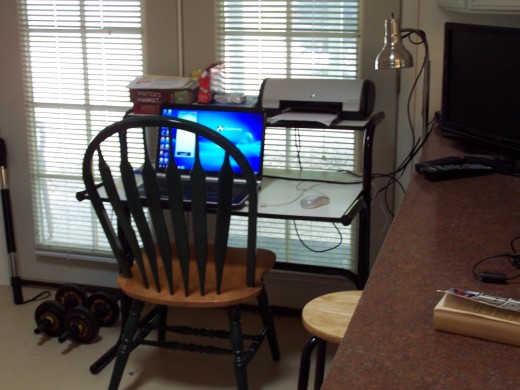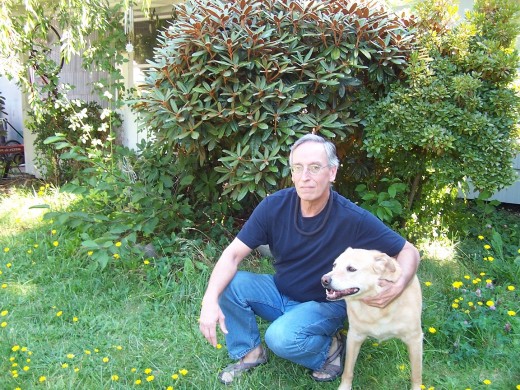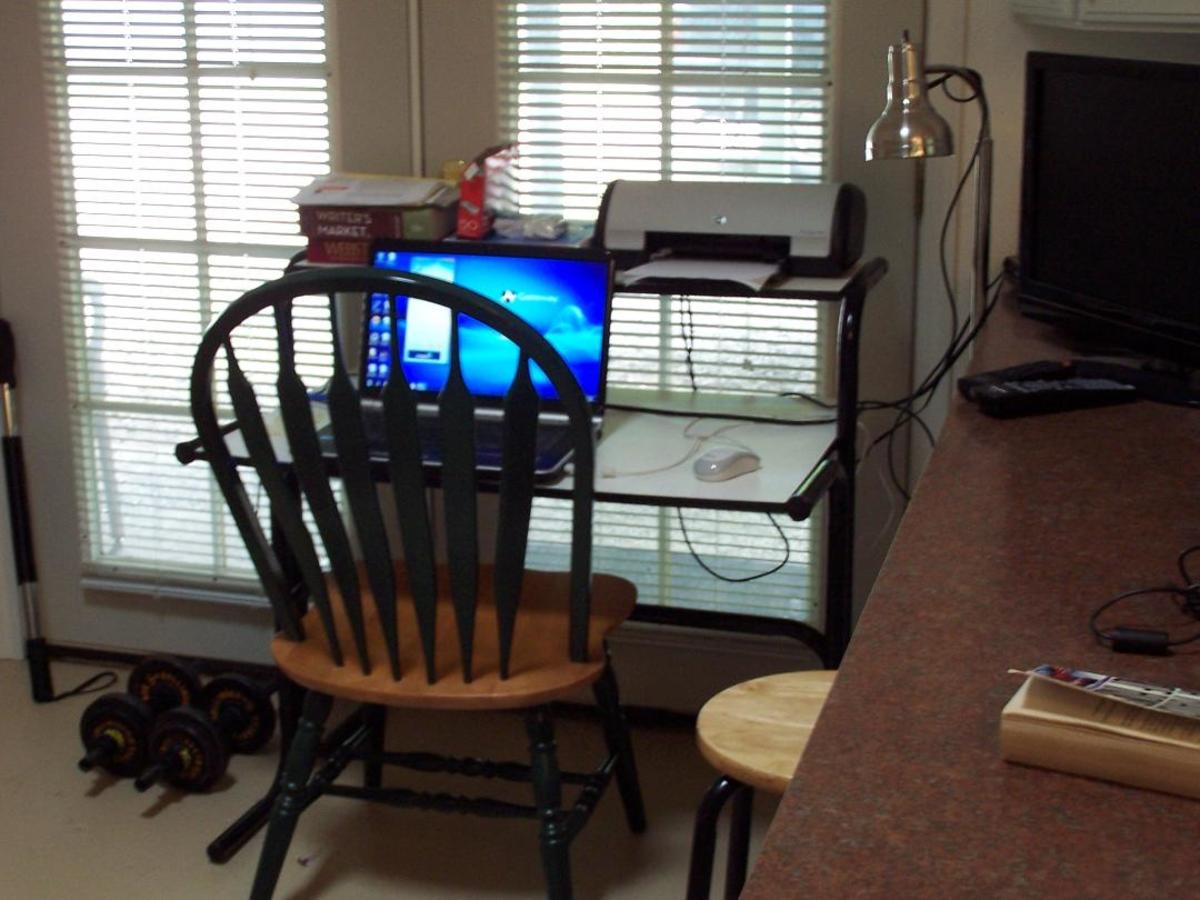The Writer's Mailbag: Installment Eighteen
This Is How It Works
And I have no idea why I’m in bold right now!
Anyway, in case you are new to this gig, you ask questions and the Writing Guru will give you answers. Will they always be the correct answers? We sure hope so, but if the Guru is wrong you can count on his followers to set the record straight in the comment section. One thing about writers is they are never short on opinions.
So, leave your questions below, or you can also ask questions on my website at www.williamdhollandauthor.com and I’ll get back to you soon.
Let’s begin so I can get out of this bold style.

QUERIES
From Lea: “I DO have one question...and since I am behind in some of your 'installments' I apologize in advance if this question has already been asked...here it is.
“When approaching a book publisher with a query regarding your completed manuscript, is it permissible OR tacky to include a list of your current writing credits? Do they want to see if you have published in the past? Are they interested in a short bio? (such as being a member of writing organization...stuff like that). I have a list of my writing credits on file... No rush with an answer. Just wondering.”
No need to apologize, Lea, it’s a great question.
The secret to any query letter is to get as much bang for your buck in one page. If you haven’t sold the publisher in one page you ain’t never going to sell them, and yes, I meant to write poor grammar there.
Listing all of your writing credits will only hurt you. List several and make them pertinent to the business at hand. If you have been published by a publisher in the past, by all means highlight that. If you have self-published, mention it briefly. Traditional publishing houses are not impressed with self-publishing, and I think that is understandable.
And yes, always include a brief bio, with emphasis on brief, and only make it pertinent to your writing experience. For example, if you have a college degree in Marketing, publishers could not care less. If your degree is in Creative Writing, then you have something to mention.
I hope that helps.

Social Networking
From Iris: “Here's a question for you. You are everywhere (OK, that's a statement but bear with me). You're often the first to post a comment when I publish a new article. When I log onto Facebook, there you are posting regularly. You're very social, and your connections are impressive (and genuine). What advice do you have for those of us who are trying to branch out and connect with other writers as well as promote ourselves. There are only so many hours in a day. What are the best ways to increase our readership and find other writers with similar vibes? How much time per day would you recommend budgeting for these social media type activities?”
This is a question I’m asked quite often. Let me answer the last part first: the amount of time you budget for social media depends on your lifestyle. People who have full-time jobs cannot spend the amount of time I spend. No matter how busy you are, however, I do suggest you budget a portion of your spare time to social media.
Now for the first part of the question. I can only tell you what I believe is true regarding my connections and followers, but since this is about me, who better to tell you, right?
I’m sure some of my loyal followers are with me because of whatever writing ability I might have, but I think the majority of followers, and I mean loyal followers, stick with me because I am a real person to them. I made the decision early on to connect with readers on a very human level. What you see with me is who I am. There are no pretenses. I’m not trying to impress anyone. I show my warts along with my smile, and I allow people to know who Bill Holland really is. I think that appeals to people, and I think that appeal has shown in the following I have. When people read my work it’s like sitting in a room with a friend having a chat, and that was a goal of mine early on in my writing career. Readers are not numbers to me; they are real people and I’m interested in them, and I think they sense that. I know about their lives. I know about their family members, and I’ve made it a point to send an email to those who might be down or who have had a tough time in life. That’s what human beings do. First and foremost I am a human being. I’m a writer second.
PRODUCTIVITY
From Jamie: “Any tips on how to produce so many hubs each week? My goal is five but I'm lucky if I can punch two out!”
Jamie is one of my new followers, and I appreciate the question.
I’m a very organized writer, and I think any writer who wants to reach a level of success needs to be organized as well. I have a schedule I follow weekly, and the schedule is broken down to each hour of the day. Now mind you, I’m not a stay-at-home mother like Jamie is, so I have more time to devote to writing, but even if I were a stay-at-home parent, I think it would be crucial to make a writing schedule and then stick to it with fervor. I don’t know of any other way to avoid the distractions that are natural in any given day.
My website helps establish professionalism
- William Holland | Helping Writers to Spread Their Wings and Fly
Tips and discussions about writing
A Professional Face
From Brian: “What words of advice would you give to someone just starting out as a freelance writer?”
Well, Brian, that could be an entire article all by itself, so I’m going to give you what I believe to be the most important step you can take. Are you ready?
Believe you are a professional writer. In other words, fake it until you make it. If you don’t believe in yourself and your abilities, how do you expect customers to believe in you? You have to approach this like your financial livelihood depends on it, because for many people, it does.
When I started out, I set up a website for my business, I got business cards, and I announced to the world that I was a professional freelance writer. Image is very important in any business, and I exuded the image of a confident professional writer. Mind you, I didn’t have a clue what I was doing. I knew I could write an intelligent sentence, but I didn’t know the first thing about making money as a freelancer. But there was no way anyone else was going to hear me say that.
You have to have that kind of confidence, because I promise you, if you appear scared or unsure of yourself, customers will know, and then you are doomed.
A must for any freelance writers in the U.S.
Hubpages Reference
From Sally: “I am curious - do you ever send prospective clients to HubPages to view your writing or do you always send an enquiry letter with the proposed project or article?”
This is a wonderful question by Sally, and it’s one I asked myself when I first joined HubPages nearly three years ago. The quick answer is an emphatic NO, and there are two reasons why I don’t tell editors/agents/publishers about my HP experience.
First, I found that those in the business do not take HP seriously. To most editors and agents, HubPages is one step above journaling. I know this because I asked them. I went to several blogs posted by agents and I asked that question, and their response was they didn’t care what I do on HP.
Secondly, all agents and editors are concerned with are bylines. Have I published my work in magazines or newspapers? That’s what they want to know, period!
Now, having said that, I have sold HP articles to magazines, but I never send an editor to HP to look at that article. Rather, I pitch the article itself in a query and leave any reference to HP out of the query.
I hope that helps, Sally.
More Next Week
Great questions this week, folks, and I thank those who sent in those questions. I’ll be back next Monday with another installment of this series. Thanks for following along.
2014 William D. Holland (aka billybuc)
“Helping writers to spread their wings and fly.”











